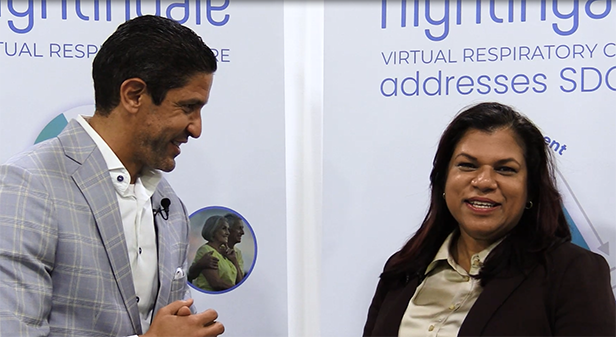<p>COLUMBIA, S.C. – Brad Wood knows a lot of certifications, that seemingly never-ending list of acronyms that indicates specialized training in a specific technology or vendor's product. As network administrator at Clark County Schools Employees Credit Union in Vancouver, Wash., Wood has to know what they mean when he hires staffers to help run the infrastructure at his $240 million, 33,000-member organization. He also knows what they don't mean. "It's easy to find a person with a CNE or MCP or whatever," says Wood, whose CU has an information-systems staff of 10. "What is difficult is finding someone who has had the chance to apply the knowledge in a real environment and who doesn't expect the moon as part of their salary package," he says. Size doesn't seem to matter in that regard. "We have a tough time paying already-certified technicians because they want more than we can pay," says Georgann Reeve, manager of the Information Center, LAN and Telecommunications at the nation's largest CU, Virginia-based Navy Federal. "It's easier now than a year ago due to the dot-com bust, but these folks still want to be paid what they were making, and we don't pay what they are seeking," says Reeve, whose $14 billion CU has a core IS staff of 350 people, 43 of them full-timers in Reeve's department. "Retention is even harder because their expectations are higher for personal incentives and bonuses," Reeve says. "In addition, they are looking for additional training to maintain their certifications or pad their existing, and we can't invest that much training dollars in a new person until they have proven themselves, or the training budget is already firm and we can't guarantee them so they decline" the offer to join Navy Federal, she says. GROWING YOUR OWN Reeve says her department "has had a much more positive experience `growing our own.' "We bring in young, ambitious or eager young technicians and train them from the ground up. They start as workstation analysts having come from the business call centers. They bring with them the knowledge of how the credit union works, and we teach them technical skills. "The one qualification you can't judge from a resume is work ethic. If we have someone with a good work ethic and willingness to learn, we can make a fair technician out of them." Still, the various technologies in place do require specific knowledge that specialized training provides, and certifications have become big business. There are more than 500,000 holders of the Microsoft Certified Software Engineer (MCSE) designation, for instance, the major technology vendors have a variety of them, including Oracle, Citrix, Cisco, Hewlett Packard and on and on. A good place to get a handle on that alphabet soup is at www.certcities.com, says Eric Janda, vice president of Texas-based D. Hilton Associates, an executive recruiting and consulting firm specializing in the credit union industry. And while scoping out that Web site can help you learn the difference between MCSE and CCNA, not to mention CCNP, CAN and CNP, SANS and LNP, Janda and other experts in the field of managing the IT workforce still agree: Nothing replaces on-the-job learning, and managing expectations remains a challenge. PAYING HIS DUES "I would like to share my experience with certs with you," says Wood at Clark County Schools Employees CU. "In 1995, I went through a program to get my CNE. I have no doubt those three letters got me my first job," he says. "I went through a `slow-track' program that took six months to complete the seven classes and tests. During that time, everyone talked about how much money they would be making "Once I started working, I knew I had to pay some dues before getting to an upper-level position. I worked as a computer-support tech then a network tech then an IS manager and now at the credit union, I'm the network administrator. "Each job carried more responsibility and required me to expand my knowledge base. I paid my dues," Wood says. "I recently began interviewing for a position that opened at the CU. Most of the candidates were fresh out of school, with very little experience, but they had fancy certifications like CNE and CCNA. "I didn't hire a single one of them. They wanted far too much money for their experience. The certification in my eyes is only an opportunity to get the interview. It does not dictate who gets hired and for how much." He adds: "One of the biggest problems is that the learning centers are ingrained into the students' heads that they will be highly sought after and demand a high starting salary. This simply is not true. "By the end of the 90′s, hiring managers started to realize they needed to look a littler harder at the potential candidate and not take their certifications at face value. The different companies providing certs also started to recognize the problem and have worked hard at making the tests more difficult." Wood, who stresses that he recognizes the overall value of certifications, also points out a not-so-obvious advantage (at least to outside observers) of certification. "The person usually gains access to support which is not available to other tech people. For instance, Novell has a forum called CNE Net. This is a private Web site for certified Novell techs to communicate with each other and discuss any issues they may have." On the other hand, Wood notes that newly minted technicians – "paper-certified" was a term he says was coined in the early 90′s to describe someone with a certification but no experience – "need to understand they are not worth the same as a seasoned veteran with no certifications." David Foss agrees. "For us, the top of the list is experience," says the president of Open Systems Group, a Dallas-based Jack Henry & Associates subsidiary whose Matrix Network Services operation has built a staff of IT specialists in the past couple years to meet its fast-growing client list, which now comprises about 220 credit unions and banks. "In building an organization like mine, past experience and personality are both pretty important," says Foss. "In the hiring period we're in now, in the past two years, we've been through a thousand resumes, interviewed 125 people or so and hired 27." The personality part comes into play out in the field, of course, where Foss' staffers are responsible for networking with systems as well as people. "Our people are out there working in the back room of financial institutions with people who are sometimes not highly technical. It's important our guys can go in and speak English, not in bits and bytes and going over everybody's heads. "Really, that's true for any organization. You look for life experiences, for personality." That said, Foss points out that certifications are still significant in a lot of contexts, and that while an organization like his needs people with a variety of training and experiences, the same may not be true of a specific financial institution. "If I'm running a credit union and I have a traditional LAN (local-access network) with a bunch of fat work stations on it, that defines for me what kind of person I need to administer my network," the OSG president says. "If on the other hand, I'm running a Citrix thin-client operation, the certification or past experience I'm looking for would be very different." STAYING ON TASK As far as trends, one big thing observers note now is a growing increase in task-specific certifications, such as the GIAC (global information assurance certification) program offered by the non-profit SANS Institute security association (www.giac.org). The number of vendor-specific training certificates, and the number of people taking them, also can be expected to grow. "More people have certifications than ever before, and I think people will continue to pursue them," says Janda at D. Hilton Associates. And "certifications in reality are sort of short-term, since we all know how fast technology changes," says Foss at OSG. "It's imperative for us and them to do ongoing education. We send our people to training classes, depending on our needs and their interests, and to refresher courses," he says. Foss, whose clients include banks and credit unions, also made this observation: "The need for keeping up is not something that should be underemphasized. But it's not nearly the issue in credit unions that I've seen in banks, where they're much more reluctant to invest in training. It's very challenging to get them to make a commitment to education. "My experience in credit unions is more limited, but I've seen them more willing to make that investment in ongoing education, and this is an area where you absolutely have to do that." -</p> <p>[email protected]</p>
Complete your profile to continue reading and get FREE access to BenefitsPRO, part of your ALM digital membership.
Your access to unlimited BenefitsPRO content isn’t changing.
Once you are an ALM digital member, you’ll receive:
- Critical BenefitsPRO information including cutting edge post-reform success strategies, access to educational webcasts and videos, resources from industry leaders, and informative Newsletters.
- Exclusive discounts on ALM, BenefitsPRO magazine and BenefitsPRO.com events
- Access to other award-winning ALM websites including ThinkAdvisor.com and Law.com
Already have an account? Sign In
© 2024 ALM Global, LLC, All Rights Reserved. Request academic re-use from www.copyright.com. All other uses, submit a request to [email protected]. For more information visit Asset & Logo Licensing.








